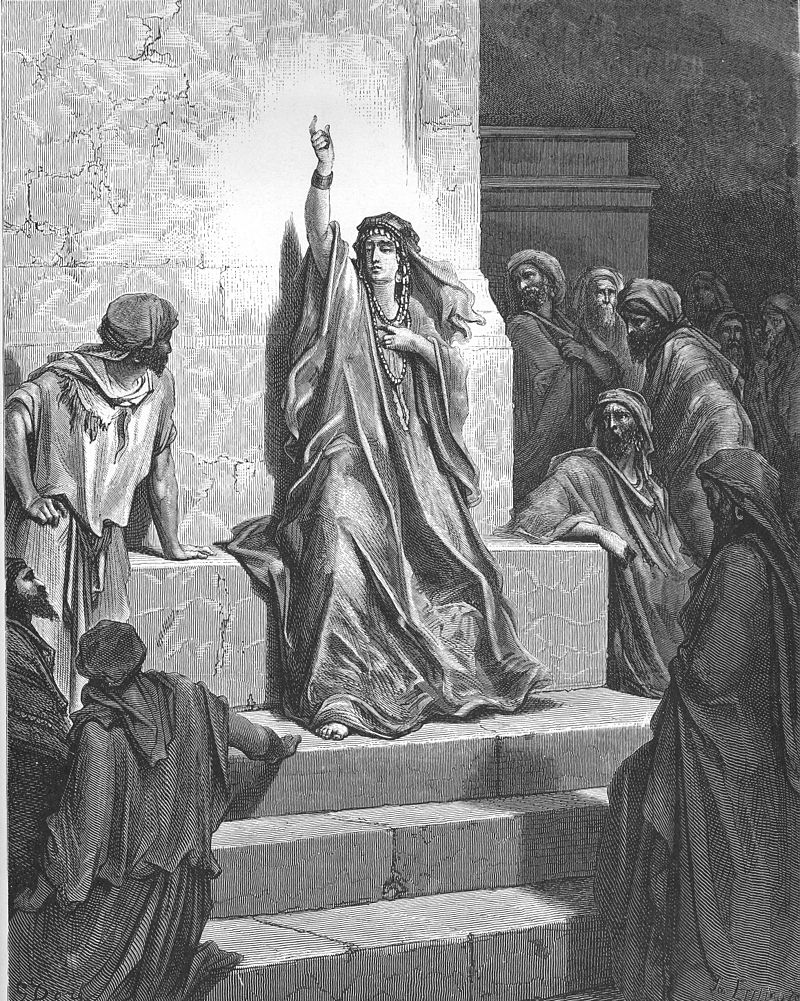COURAGE IN THE FACE OF DANGER
THE SEED
“Then Deborah said to Barak, ‘Go! This is the day the Lord has given Sisera into your hands. Has not the Lord gone ahead of you?’ So Barak went down to Mount Tabor, with ten thousand men following him.” – Judges 4:14
When Deborah, the prophetess and judge of Israel, revealed God’s plan to defeat Sisera, the powerful general of King Jabin of Canaan, she issued a bold call to action. She urged Barak to lead Israel’s army into battle. However, Barak was hesitant and admitted that he would not go unless Deborah accompanied him. Sisera was known for his cruelty and strength, and understandably, Barak feared him. But God had already declared the outcome; victory for Israel. True to His word, God rose against Sisera, and Israel triumphed. It is natural to feel overwhelmed when facing strong opposition, especially when we look at the situation through human eyes. But God is calling us to see with the eyes of faith and trust in His promises. When God speaks, His word is final. As believers, we are called to be courageous, even in the face of danger, because our God is the Lord of Hosts, the Man of War who has never and will never lose a battle.
BIBLE READING: Judges 4:6–15
PRAYER: Oh Lord, increase my faith in You, in Jesus’ name. Amen.
ÌGBOYÀ NÍWÁJÚ EWU
IRUGBIN NAA
“Nígbà náà ni Débórà sọ fún Bárákì, ‘Lọ! Èyí ni ọjọ́ tí Olúwa ti fi Sísérà lé ọ lọ́wọ́. Ṣé Olúwa kò ha ti lọ níwájú rẹ?’ Nítorí náà Bárákì sọ̀kalẹ̀ lọ sí Òkè Tábọ̀r, pẹ̀lú ẹgbẹ̀rún mẹ́wàá ọkùnrin tí wọ́n ń tẹ̀lé e.” – Àwọn Onídàájọ́ 4:14.
Nígbà tí Débórà, wòlíì obìnrin àti onídàájọ́ Ísráẹ́lì, fi èto Ọlọ́run hàn láti ṣẹ́gun Sísérà, olórí ológun alágbára ti Ọba Jábínì ti Kénáánì, ó pè ní ìpè ìgboyà fún ìṣe. Ó rọ Bárákì láti darí ológun Ísráẹ́lì sínú ogun. Ṣùgbọ́n, Bárákì ṣàjàkálẹ̀ ó sì jẹ́wọ́ pé òun kò ní lọ àyàfi tí Débórà bá bá a lọ. Sísérà jẹ́ ẹni tí a mọ̀ fún ìkà àti agbára rẹ̀, láìṣiyèméjì, Bárákì bẹ̀rù rẹ̀. Ṣùgbọ́n Ọlọ́run ti kéde ìgbẹ̀yìn; ìṣẹ́gun fún Ísráẹ́lì. Gẹ́gẹ́ bí ọ̀rọ̀ rẹ̀, Ọlọ́run dìde lòdì sí Sísérà, Ísráẹ́lì sì borí. Ó jẹ́ àdámọ́ láti gbá ọkàn nígbà tí a bá dojúkọ àlàyé àtakò, pàápàá nígbà tí a bá wo ìṣẹ̀lẹ̀ náà pẹ̀lú ojú ènìyàn. Ṣùgbọ́n Ọlọ́run ń pè wá láti rí pẹ̀lú ojú ìgbàgbọ́ kí a sì gbẹ́kẹ̀lé àwọn ìlérí rẹ̀. Nígbà tí Ọlọ́run bá sọ̀rọ̀, ọ̀rọ̀ rẹ̀ ni òpin. Gẹ́gẹ́ bí onígbàgbọ́, a jẹ́ ẹni tí a pè láti ní ìgboyà, kódà níwájú ewu, nítorí Ọlọ́run wa ni Olúwa àwọn Ọmọ-ogun, Ọkùnrin Ogun tí kò ní ìfìmọ̀ kò sì ní kúnlẹ̀ ní ogun kan.
BIBELI KIKA: Àwọn Onídàájọ́ 4:6–15.
ADURA: Olúwa o, mú ìgbàgbọ́ mi pọ̀ sí i nínú Rẹ, ní orúkọ Jésù. Àmín.
